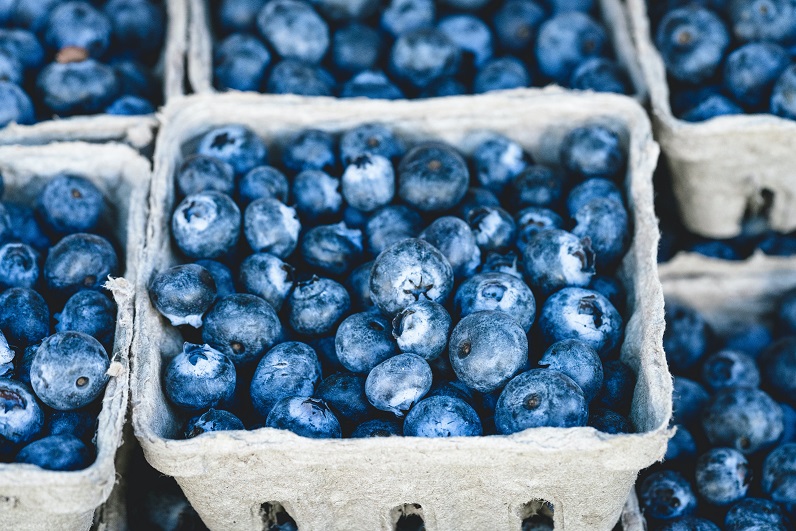Wide blueberries can help slow memory loss.
After the age of 65, cognitive decline and dementia become a concern for many of the population. According to the CDC, the presence of subjective cognitive decline affects 1 in 9 adults 65 and older. In 2016 research stated that 39% of adults over the age of 65 experienced serious cognitive problems, and 68% of those were unable to live independently. Finding solutions that will prevent or decrease the effects of cognitive dysfunction will greatly help the needs of the elderly community. Researchers believe that lifestyle changes can slow the deterioration of the brain and its cognitive function. Mediterranean diet trends have emerged in past studies showing fresh vegetables, fruits, legumes, fish, wine, and olive oil are most healthful for the brain. Some of these contain polyphenol, which has been shown to help cognitive processes in older adults. Being a huge source of polyphenol, wild blueberries, became the primary focus.
Earlier data has shown blueberries reverse age-related neuron decline and increased blood flow to the brain. Researchers hypothesized that wild blueberries consumed by older adults impacted by cognitive decline would improve the speed of processing; a major component of cognitive health.

They gathered 296 adults between the ages of 65-80 from a southeastern United States community. 133 of these adults met the standards for the test. Participants were only accepted if they consumed fewer than five servings of fruits and vegetables and were not allergic to blueberries. None of the participants had a diagnosis of dementia, Alzheimer’s, central nervous system disorders, psychiatric disorders, gastrointestinal diseases, or diabetes. Zero of the adults took medications that limited cognitive abilities or limited blood flow.
The test was conducted in a double-blind, placebo-controlled trial for a six- month period at the University of North Carolina Chapel Hill Nutrition Research Institute. 86 of the 133 were experiencing mild cognitive decline. These adults were assigned to consume a lyophilized wild blueberry powder daily or a placebo composed of maltodextrin and sugar daily for 6 months. The list of who was in each group was generated at random. The adults not experiencing cognitive delays were placed in a reference group. Each group was required to attend 9 visits over the 6 months. They underwent behavioral and cognitive assessments, blood, urine, and diet information collection; And also, health and physical activity questionnaires. After undergoing different neurological and cognitive tests, each participant was tested in 5 different categories. The categories gauged interaction, reaction, and movement time, working memory and planning, visual learning, and ability to sustain attention over time.
The results showed the speed of processing significantly improved in the blueberry group compared to the placebo group. Additionally, blueberries restored the speed of processing to the reference group not suffering from cognitive delays. The improvement was most noticeable in adults ages 75-80. Interestingly, the results showed that the blueberries aided in protection from cognitive fatigue. “Processing speed is a basic component that underlies all cognitive abilities,” the researchers said. The improving data from the study shows consuming polyphenol is an effective tool in combating cognitive decline and could be an important building block in how we treat the declining cognitive ability in our elderly.
Sources:
Blueberries, a tasty intervention against age related cognitive decline


Join the conversation!